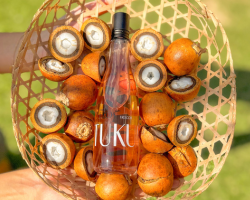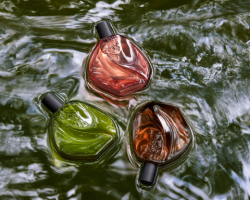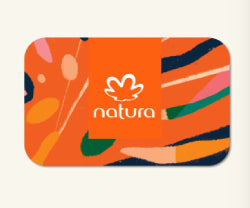sustainability
Natura Helps Conserve 1.8 Million Hectares of Standing Forest
Discover what we do for the Amazon and the people living there to achieve this number
- By Natura Team
What can a beauty brand do for the environment? We, at Natura, took the decision to invest in measures to conserve the Amazon. From 2000 until today, we have contributed to conserving 1.8 million hectares of standing forest. This represents 12 times the size of the city of São Paulo, 14 times the city of Rio de Janeiro and almost 26 times the size of Salvador.
These numbers are based on an analysis of the annual deforestation rates of the Amazon region produced by the Brazilian National Institute of Space Surveys (INPE) – the official source of data for public policies in this area. Based on this, we combined our activities in production chains and in the direct and indirect relations derived from them, adding the limits of the environmental conservation units in which we operate established in the Ministry of the Environment Cartographic Base.
Fairtrade
The thread running through this work is fair trade, recognized with international UEBT (Union for Ethical BioTrade) certification, awarded for the pioneering work done with Natura Ekos products. Granted in 2018, we have had the seal for one year.
Rather than just buying raw material, we decided to establish careful relationships with the families supplying the ingredients (currently 5,600 in Brazil, 81% of which in the Amazon). We define a fair price for the ingredients jointly with the communities, employing participative methodologies. We promote training to strengthen these families, mainly in management and organizational development. Furthermore, we provide incentives for the best stewardship practices and occupational health and safety.
In 2018, we paid out almost R$ 36 million to the supplier communities, a 50% increase over the previous year. This amount represented an average annual income of around R$ 3,000 for each family supplying ingredients. But that is not all.
Benefit sharing
One of the main legal mechanisms for maintaining fair relations between companies working with biodiversity and the people supplying it is benefit sharing. The Convention on Biological Diversity (CBD), an international agreement established as a result of ECO-92, determines the recognition of the fundamental role exercised by local communities in conserving biodiversity, with the fair sharing of the benefits accruing from the use of these resources.
This convention determines that all the companies that use this genetic heritage or the traditional knowledge of a people for commercial purposes should return a part of the benefits generated from such use. When we signed our first contract in 2004, we were the first company to perform this type of sharing in Brazil and one of the only ones in the world.
Among the results of benefits sharing, there are initiatives to drive the conservation of biodiversity such as the establishment of the Sustainable Development Fund for the Comaru cooperative (Cooperativa Mista dos Produtores Extrativistas do Rio Iratapuru), located in the Iratapuru Sustainable Development Reservation in the State of Amapá, in the North of Brazil. Incidentally, this was the first cooperative to supply ingredients for the Natura Ekos product line.
Education in the field and in the forest
Another form of positive support we provide, jointly with a network of partners, is the implantation of a secondary and technical education model aimed at promoting rural entrepreneurship called Rural Family Homes (Casas Familiares Rurais, in Portuguese). The most recent unit is located in the Mid Juruá region, in the State of Amazonas, inaugurated at the beginning of 2019.
Circular Carbon
The Circular Carbon project is another way we have to contribute towards keeping the forest standing. With this project we remunerate smallholders for environmental conservation services. Currently, the initiative is being executed in partnership with the RECA cooperative, located on the border between the Brazilian states of Acre, Amazonas, and Rondônia.
Agro-forestry System
Fighting to keep the forest standing also means seeking forms of cultivation that incorporate the forest as an inspiration. Since 2007, we have been engaged in a project to adopt an agroforestry system (AFS) for the cultivation of palm oil (also known as dendê in Brazil), a raw material employed internationally for diverse products, particularly in the cosmetics and food industries.
The AFS represents the opposite of the monoculture system – which is threatening forests worldwide. It combines the culture of a specific crop (in this case, the palm) with other crops such as Cocoa, Açaí and Andiroba.
In the first phase of the programme, conducted in partnership with Financier of Studies and Projects (Finep), the system was tested in an area of 18 hectares managed by producers belonging to the CAMTA Cooperative in the state of Pará. The pilot demonstrated the effectiveness of the model.
Socioenvironmental benefits
Not only is palm oil production volume in the AFS higher than in monoculture systems, but the system also generates other socio-environmental benefits, such as the creation of a natural barrier against pests in the function of the diversity of vegetable species, as well as the sequestration of carbon from the atmosphere. In the social area, the biodiverse system represents food security for the agricultural producers, who may also boost their income from the commercialization of additional crops.
In 2018, the AFS programme was extended and now covers 38 hectares. Natura has initiated studies to enable the extraction of palm oil from agroforestry systems on a commercial scale. In addition to employing this sustainable palm oil in its portfolio in the near future, the company expects the project to become a benchmark that can be scaled up and used in other countries. Whenever an initiative produces positive results, we always seek to expand it. Making the world more beautiful permeates all our actions.














